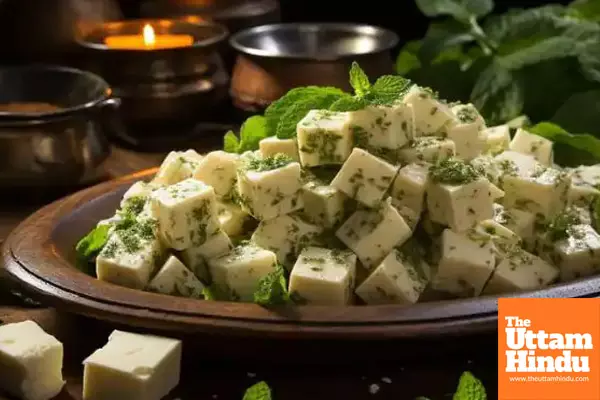
The Rise of Analogue Paneer: A Fake Version of Cottage Cheese

New Delhi (The Uttam Hindu): In today’s market, consumers face a growing challenge when it comes to identifying authentic products, and paneer is no exception. Enter analogue paneer a synthetic alternative to the traditional cottage cheese, which has been making its way into homes and eateries. Despite resembling the real thing in appearance and taste, this imitation paneer is made with vegetable oils, starch, soy, nuts and other non-dairy products, raising questions about its authenticity and nutritional value. According to the Food Safety and Standards Authority of India (FSSAI), analogue paneer is a product in which non-milk ingredients are used to replicate milk or milk products. Though not illegal, this synthetic version of paneer is often sold as normal cottage cheese, tricking buyers who expect a traditional dairy product. The most significant difference between the two lies in the cost and production process. Analogue paneer is considerably cheaper, often selling at half the price of authentic cottage cheese. While a kilogram of genuine paneer may cost around Rs 450, analogue paneer is typically priced between Rs 200 to Rs 250 per kilogram. This price difference makes it appealing to budget-conscious consumers, but it comes with its own concerns about nutrition.
How to Identify Analogue Paneer
Despite its deceptive similarities to real paneer, there are ways to distinguish between the two. Taste and texture are key indicators—analogue paneer may crumble more easily when heated, unlike authentic paneer, which forms a charred-like texture. Another crucial tip is to always check the label; terms like ‘imitation’ or ‘analogue’ often indicate the product is not made from dairy. One of the most pressing issues with analogue paneer is its lack of nutritional value. Unlike milk-based paneer, which is a good source of protein, the synthetic version lacks essential nutrients and may contain harmful trans fats from the vegetable oils used in its production. These fats are known to be detrimental to heart health, raising concerns about the safety of consuming analogue paneer regularly. As the debate over fake and hybrid food products continues to grow, consumers are urged to be vigilant and make informed choices. Whether it's the nutritional value or the ethics of buying imitation products, one thing is clear—understanding the difference between real and fake paneer is becoming increasingly important.

